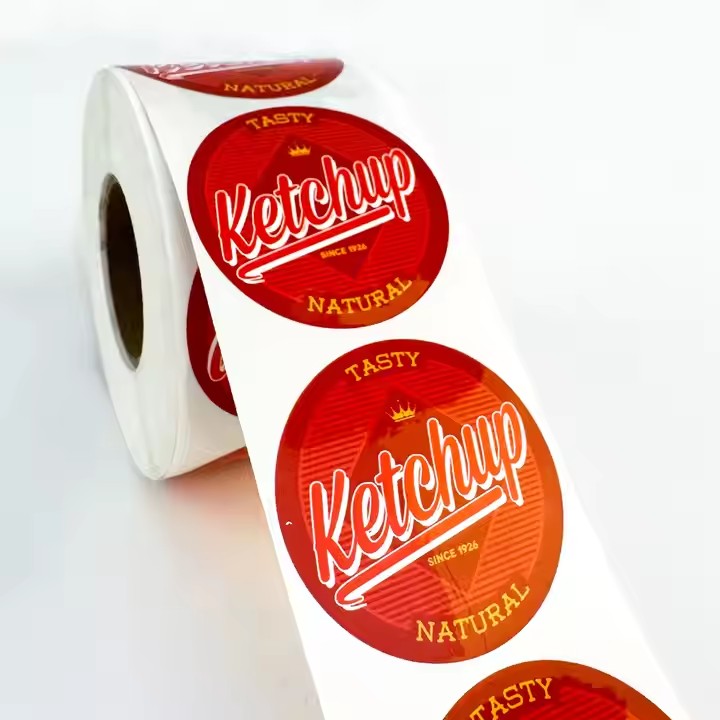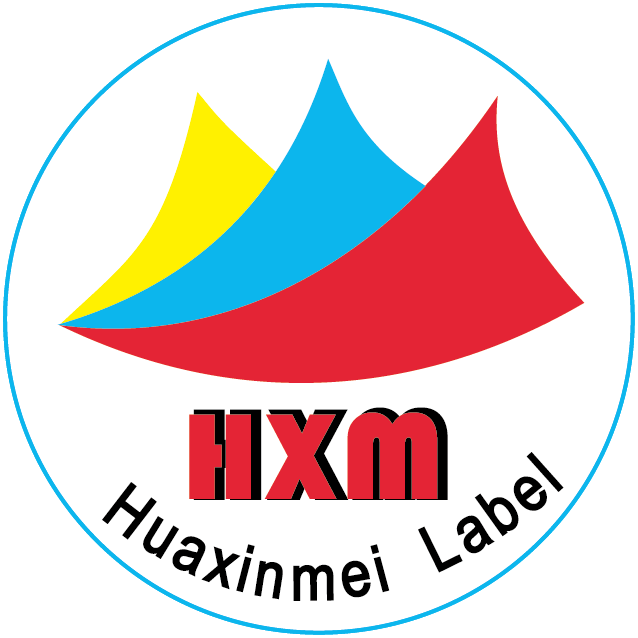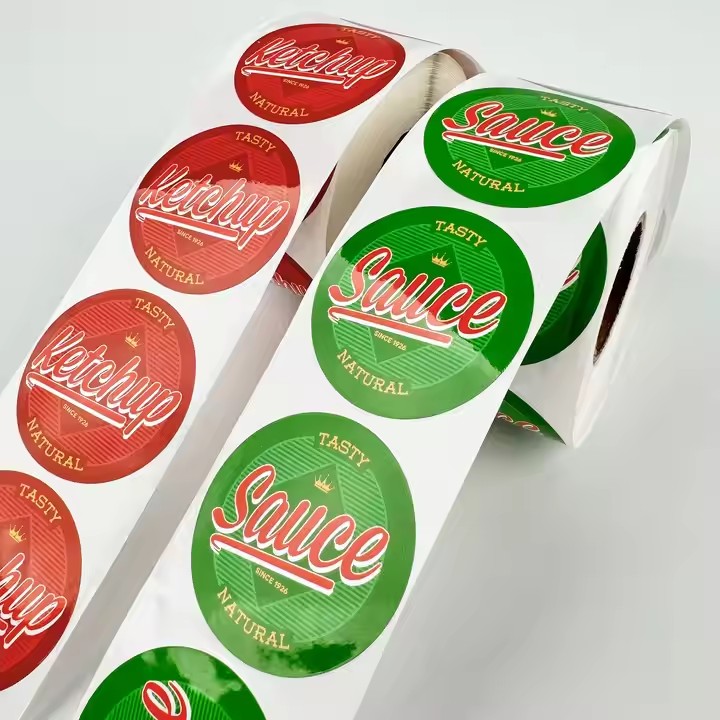Design Phase
Simplifying design elements: Avoid overly complex patterns, excessive colors, or special printing effects that increase production costs. For example, reducing the use of techniques like gold stamping or embossing and opting for simpler designs can lower costs and printing difficulty. Labels should reflect the product’s tone, with designs that are simple yet elegant, highlighting a high-end image.
Reasonably determining label size: Label size should be tailored to the product’s actual needs. Overly large labels waste materials, while overly small labels might hinder information display. Proper sizing, like adjusting label size for different volumes of products, can save material costs and create custom labels for specific products.

Material Procurement
Bulk purchasing: Establish long-term stable relationships with suppliers and purchase in bulk to secure better prices. For commonly used materials such as paper, ink, and glue, estimating quantities in advance and purchasing in bulk reduces material costs. Large-volume purchases provide cost-efficiency, and strong supplier relationships lead to better prices over time.
Finding substitute materials: Consider alternative materials that are more cost-effective without compromising label quality. For example, use lower-weight paper if the product’s label does not require heavy paper, or choose less expensive ink brands with similar performance. Innovative, eco-friendly materials can be both more affordable and durable, offering additional environmental benefits.
Material quality control: Implement strict quality checks on materials to avoid production losses caused by poor material quality. Low-quality materials can result in poor print quality and adhesion, increasing waste and rework costs. Carefully selecting suppliers and comparing prices ensures high-quality materials.
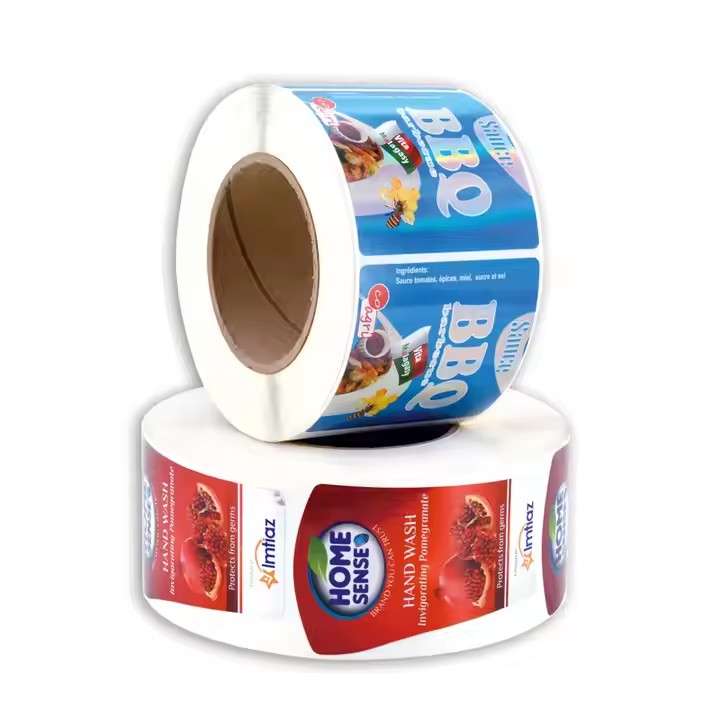
Printing Process
Choosing the right printing method:
Digital printing: Ideal for small batches and diverse orders, digital printing eliminates the need for plates, reduces setup costs, and speeds up production.
Traditional printing: For large-volume, identical label orders, traditional offset or letterpress methods may be more cost-effective, as unit costs decrease with larger quantities.
Optimizing printing parameters: By testing and adjusting parameters like print speed, pressure, and ink volume, factories can improve print quality and efficiency. For instance, finding the right print speed can prevent issues like ink drying too slowly or paper fuzzing, reducing waste. Proper ink control can minimize ink waste and lower costs.
Production Process Management
Improving production efficiency:
Equipment upgrade and maintenance: Regular maintenance ensures machines run smoothly, minimizing downtime. Upgrading to more efficient automation equipment, such as automatic labeling machines or high-speed printers, can increase output and lower labor and time costs.
Employee training: Providing staff with specialized training enhances their skill levels, reducing errors, waste, and increasing production speed.
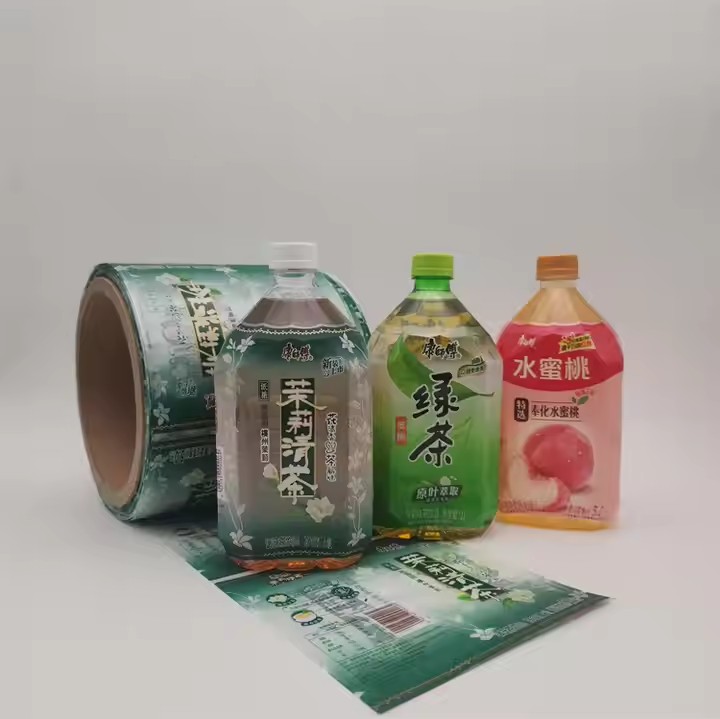
Waste control and reuse: Implement strict quality control systems to detect and address waste. Tags with minor flaws that do not affect key information can be reused for internal packaging or non-critical labeling, thus reducing waste.
Inventory Management
Precise inventory control: Use advanced inventory management systems to predict label demand accurately, preventing overstock. Excess inventory ties up capital and may lead to waste due to design changes or material aging. Adjusting stock levels according to product orders and market demand can help achieve zero or low-inventory management.
